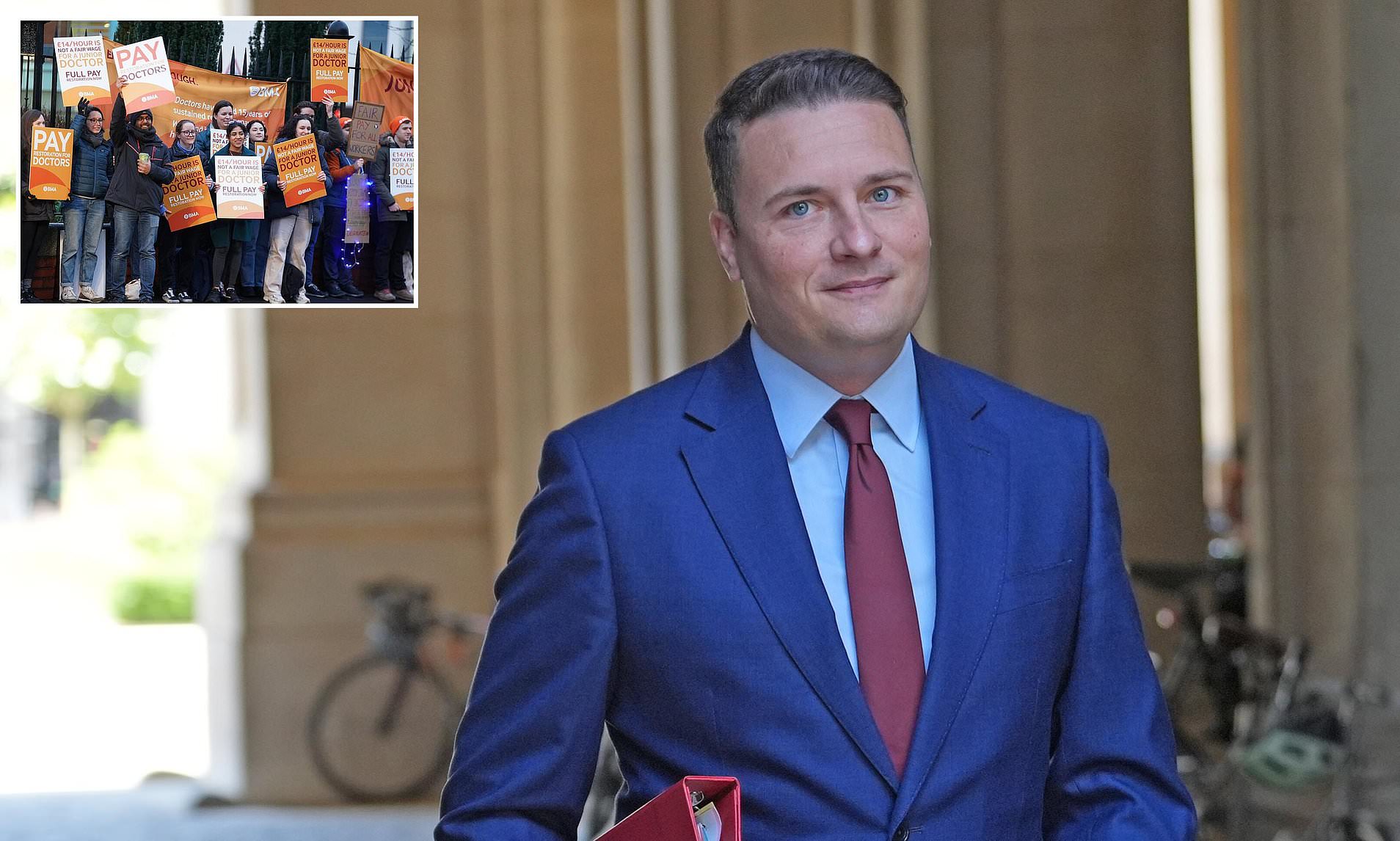NHS Recovery Plan Under Threat as Doctors Prepare for Major Strikes
The UK’s National Health Service (NHS) is facing a critical challenge as resident doctors prepare for a significant wave of industrial action. Wes Streeting, the Health Secretary, has admitted that the NHS recovery plan is “hanging by a thread” amid growing tensions between the government and medical professionals. The dispute centers around a proposed five-day strike by resident doctors, which could lead to the cancellation of 200,000 appointments and operations.
The strike, set to begin on July 25 at 7am, follows demands from the British Medical Association (BMA) for a 29% pay rise. This comes just weeks after the government granted a 22.3% pay increase to resident doctors. Despite this, the BMA has continued its push for further negotiations, arguing that the current pay levels do not reflect the demanding nature of their work.
Streeting has reiterated his stance that he will not negotiate on pay, urging the BMA to reconsider its decision to proceed with strikes. He emphasized that no trade union in British history has seen such a significant pay increase followed by immediate industrial action. “The majority of BMA resident doctors didn’t vote to strike,” he said, adding that the BMA’s actions are “completely unreasonable.”
The situation has raised concerns about the broader implications for the NHS. With the backlog of routine hospital treatments in England slightly reduced from 7.6 million to 7.4 million, the upcoming strikes risk undoing any progress made. Hospital bosses have already canceled 1.5 million appointments in 11 separate strikes since 2022, highlighting the ongoing strain on the healthcare system.
Public opinion is also shifting against the strikes. A recent survey by the Good Growth Foundation found that 56% of Britons oppose the planned walkout, with only 21% supporting it. This reflects a growing sense of frustration among the public, who feel that the doctors’ demands are not justified given the recent pay increases.
In a letter to the BMA’s Resident Doctor Committee, Streeting expressed his confusion over the decision to strike, stating, “The public won’t see why, after a 28.9 per cent pay rise, you would still walk out on strike, and neither do I.” He called for a return to negotiations, emphasizing the need to focus on improving working conditions rather than pay.
The BMA has responded by stating that they attempted to avoid the strike by opening negotiations for pay restoration. However, they claim that the government has refused to engage on pay issues, instead focusing on non-pay elements without providing clarity. Without a credible offer to restore pay, the BMA says it has no choice but to proceed with the strike.
Health leaders have warned that the strike will cause widespread disruption. Daniel Elkeles, chief executive of NHS Providers, described the short notice of the strike as “harmful” and unfair to patients whose care will be canceled at the last minute. Danny Mortimer, chief executive of NHS Employers, added that the walkout will result in thousands of cancelled appointments and operations, ultimately affecting patient care.
The potential for further strikes by other medical staff, including nurses and consultant doctors, adds to the uncertainty. Unions representing these groups are currently asking members if they want to walk out over pay, raising fears of a prolonged period of industrial action this summer.
As the situation unfolds, the NHS faces a difficult balancing act between addressing the concerns of medical staff and ensuring that patients receive timely and effective care. The coming weeks will be crucial in determining whether the government and the BMA can find a resolution that satisfies both sides.







